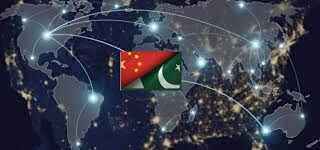
New measures announced by President Xi Jinping to support the United Nations will offer a strong boost to the 2030 Agenda for Sustainable Development, bolster the level of food security and reduce extreme poverty for the world’s least developed countries, officials and experts said.
In a speech delivered via video at the general debate of the 75th session of the United Nations General Assembly, Xi announced a $50 million donation to the China-UN Food and Agriculture Organization South-South Cooperation Trust Fund (Phase III) and another $50 million to the UN COVID-19 Global Humanitarian Response Plan.
The donation to the FAO comes on the heels of China’s funding support to the organization in 2009 and 2015, which totaled $80 million.
The contributions have funded two phases of the FAO-China South-South Cooperation programs, through which China sent 350 agricultural experts to 12 developing countries in Africa and Asia to share their expertise in the production, processing, storage and marketing of agricultural products.
“We are very grateful for this new $50 million contribution announced by President Xi, as it provides a strong boost to the work of the FAO-China South-South Cooperation Program,” said FAO Director-General Qu Dongyu.
“Through knowledge-sharing, and the exchange of expertise and technologies between developing countries, the program aims to improve food security and nutrition, reduce rural poverty, engage rural women and youth, build resilience, and develop local capacities to contribute to the 2030 Agenda,” he said.
Li Zhiping, deputy director-general of the Foreign Economic Cooperation Center at the Ministry of Agriculture and Rural Affairs, said the new donation indicates the strong emphasis China’s top leadership places on South-South cooperation in the agricultural area in the new era.
“It also shows that China will push forward South-South cooperation to a higher and deeper level with more pragmatic actions,” she said.
With close to half of the goals laid out in the 2030 Agenda related to agricultural development, Li said the program between China and the FAO is an important way to help realize goals set in the agenda and concrete action to build a community with a shared future for mankind.
In his speech at the UN meeting, Xi said China is set to lift out of poverty all of its rural residents living below the poverty line by the end of this year, which will enable the country to meet poverty eradication target 10 years ahead of its schedule set out in the 2030 Agenda.
China has managed to lift 850 million people out of poverty since it began reform and opening-up in 1978, which accounts for nearly 70 percent of global extreme poverty reduction, according to the World Bank.
Jeffrey Sachs, an economics professor and director of the Center for Sustainable Development at Columbia University, said China’s fight against poverty has been the most remarkable in human history, and is an inspiration to other parts of the world.
“SDG 1 (the first Sustainable Development Goal) calls for the end of extreme poverty, and China has accomplished that. The COVID-19 pandemic is a big setback for the global effort to end poverty, but there too, China has shown leadership in suppressing the pandemic.
“I believe that China has a big role to play in helping other parts of the world both to fight COVID-19 and to end extreme poverty,” he said.
Li Xiaoyun, a professor of rural development and global poverty alleviation at China Agricultural University, said China has become one of the largest contributors to global poverty reduction through its South-South cooperation and foreign aid programs.
The new measures announced by Xi directly target two factors that lead to poverty in developing countries’ public health emergencies and grain security problems.
Meanwhile, China is not only contributing funds to global poverty reduction but also its own solutions and experience-the elimination of absolute poverty through economic growth, the readjustment of income distribution and targeted poverty alleviation, he said.








